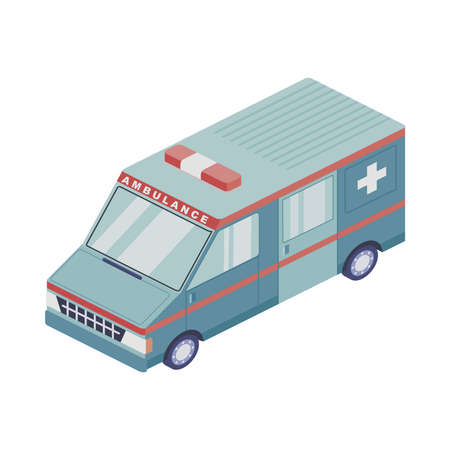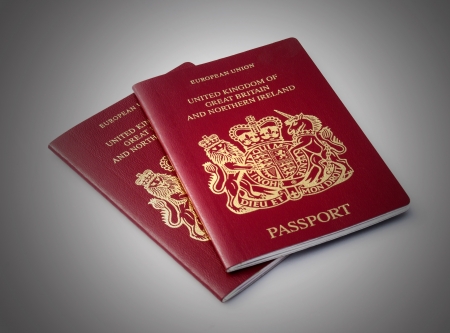Understanding Towable Trailers and Vehicle Requirements
Towing a trailer in the UK requires a clear understanding of which trailers are permitted on public roads and the legal requirements for the vehicles towing them. Not all trailers are created equal, and both their design and the capabilities of your car or van must comply with UK law to ensure safety and legality.
Types of Trailers Permitted on UK Roads
The most common types of towable trailers you’ll encounter include:
- Box Trailers: Enclosed units ideal for general transport or moving household goods.
- Flatbed Trailers: Open platforms used for carrying larger, bulkier items such as building materials.
- Car Transporter Trailers: Designed specifically for moving vehicles.
- Caravans: Used as mobile accommodation; subject to separate regulations regarding their use and size.
Trailer Specifications Table
| Trailer Type | Maximum Weight (Unbraked) | Maximum Weight (Braked) |
|---|---|---|
| General Utility / Box Trailer | 750kg | Up to vehicle’s towing limit |
| Flatbed Trailer | 750kg | Up to vehicle’s towing limit |
| Car Transporter | N/A | Up to vehicle’s towing limit |
| Caravan | N/A | Up to vehicle’s towing limit |
Vehicle Requirements for Legal Towing
Your vehicle must meet certain specifications to legally tow a trailer in the UK. These include:
- A valid tow bar that meets British or European standards (look for a type approval mark).
- The vehicles maximum authorised mass (MAM) – check your V5C logbook or manufacturer’s plate for this information.
- An appropriate towing capacity, as specified by the vehicle manufacturer.
Towing Capacity Example Table
| Vehicle Type | Towing Capacity (Braked) |
|---|---|
| Small Hatchback | 800-1,200kg |
| Family Saloon/Estate | 1,200-1,800kg |
| SUV/4×4 | 2,000-3,500kg |
Selecting the correct combination of trailer and tow vehicle is essential for legal compliance and road safety. Always consult your owners manual and ensure any modifications meet UK regulatory standards before hitting the road with a trailer attached.
Driver Licensing Rules for Towing in the UK
Understanding the driver licensing rules is fundamental when planning to tow a trailer legally in the UK. The type of licence you hold, as well as when you obtained it, directly affects what kind of trailer you are permitted to tow and the total weight allowed. Below is an overview of the main licence categories, entitlements, and any necessary endorsements required for legal towing.
UK Driving Licence Categories for Towing
| Licence Category | Issued Before 19 Jan 2013 | Issued After 19 Jan 2013 |
|---|---|---|
| Category B | Tow a trailer up to 750kg MAM*, or a trailer over 750kg if combined vehicle + trailer MAM ≤ 3,500kg | Tow a trailer up to 750kg MAM; can tow heavier trailers only if combined MAM ≤ 3,500kg |
| Category BE | Tow heavier trailers (combined MAM up to 7,000kg, depending on vehicle) | Required if combined MAM exceeds 3,500kg but not more than 7,000kg |
*MAM: Maximum Authorised Mass
Checking Your Entitlements
You can check your specific towing entitlements by looking at the back of your photocard driving licence or through the official DVLA online service. It’s important to ensure you have the correct category before towing.
Additional Requirements and Endorsements
If you passed your driving test after 1 January 1997, there may be restrictions on what you are legally allowed to tow. You might need to take an additional practical test to obtain a Category BE entitlement. For certain commercial or larger trailers, further endorsements or Driver Certificate of Professional Competence (CPC) may be necessary.
Always double-check your insurance policy and make sure your cover includes trailer towing. Failing to comply with licensing regulations can result in penalties, fines, and may invalidate your insurance during an incident.

3. Legal Weight Limits and Trailer Dimensions
Understanding the legal weight limits and trailer dimensions is crucial for anyone towing a trailer in the UK. Failing to comply with these regulations not only risks fines but can also invalidate your insurance and compromise road safety.
Maximum Weight Limits
In the UK, the weight you are allowed to tow depends on both your vehicle’s towing capacity and the Maximum Authorised Mass (MAM) of your trailer. MAM refers to the total weight of the trailer plus its maximum permitted load. Both car and trailer manufacturers specify these limits, which should never be exceeded.
| Type | Maximum Permitted Weight |
|---|---|
| Standard Car Licence (Category B) | Up to 3,500kg combined (car + trailer) |
| Trailer (Unbraked) | Up to 750kg MAM |
| Trailer (Braked) | As per vehicle’s handbook; never exceed manufacturer’s limit |
Trailer Size Limits
The legal maximum dimensions for trailers are set to ensure safe manoeuvrability on UK roads. The following table summarises current restrictions:
| Measurement | Maximum Allowable |
|---|---|
| Width | 2.55 metres |
| Length (towed by vehicle up to 3,500kg) | 7 metres (excluding drawbar and coupling) |
Calculating Towing Capacities
Your vehicle’s towing capacity is usually found in the owner’s manual or on the manufacturer’s plate located inside the driver’s door frame. To calculate if your combination is legal:
- Check your vehicle’s maximum towing weight.
- Add your car’s kerb weight to your trailer’s MAM.
- This total must not exceed the combined limit stated for your licence category.
Important Considerations:
- Towing beyond legal limits can result in fines, points on your licence, and voided insurance policies.
- If unsure about weights or limits, consult your vehicle manufacturer or seek advice from a qualified mechanic.
By keeping within these weight and dimension guidelines, you help ensure both legality and safety while towing in the UK.
4. Essential Permits and Registration Procedures
Towing a trailer in the UK is not just about having the right driving licence—its also crucial to understand when your trailer needs to be registered or if you require any specific permits. Not all trailers need registration, but there are important thresholds and legal steps to follow, particularly for heavier or commercial use trailers.
When Is Trailer Registration Required?
The requirement to register your trailer mainly depends on its weight and where you intend to use it:
| Trailer Type | Gross Weight | Registration Requirement |
|---|---|---|
| Domestic/Private Use (UK Only) | Up to 3,500kg | Registration not required for UK use |
| Towed Internationally (EU countries) | Over 750kg | Mandatory DVLA registration |
| Commercial/Heavy Trailers | Over 3,500kg | Mandatory DVLA registration even for UK use |
How to Register Your Trailer with the DVLA
- Check Eligibility: Confirm if your trailer meets the criteria for registration based on its weight and usage.
- Gather Documents: You will need proof of ownership, details about the trailer (make, model, VIN), and your personal identification.
- Complete Application Form: Fill out form VTR1, which is available on the DVLA website.
- Submit Application: Send your completed form and supporting documents by post to the DVLA address provided on the form.
- Pay the Fee: A small fee applies—check the latest rates on GOV.UK.
- Receive Number Plate & Certificate: Once processed, youll receive a registration certificate and be able to fit an appropriate number plate to your trailer.
Additional Permits and Considerations
If you’re planning to tow large or commercial trailers, especially internationally, you may also need additional permits such as a Community Licence or an International Road Haulage Permit. Always check with local authorities or consult GOV.UK before travel to ensure compliance with both UK and foreign regulations.
Your Financial Safety Net: Why Compliance Matters
Avoiding proper permits can lead to fines, invalidate your insurance, or result in being turned back at borders. Ensuring correct registration not only keeps you legal but protects you from costly mishaps—essential for safeguarding both your finances and peace of mind while towing in the UK or abroad.
5. Trailer Insurance and Roadworthiness Requirements
Towing a trailer in the UK is not just about hitching up and hitting the road; it’s crucial to ensure your trailer is properly insured and meets all roadworthiness standards. Let’s break down what you need to know to stay compliant and protected.
Securing Proper Insurance
While car insurance policies may provide third-party cover for towing, this is not always automatic or sufficient. It is essential to check with your insurer whether your policy covers your trailer for both third-party liability and damage or theft of the trailer itself. For business use or high-value trailers, specialised trailer insurance is highly recommended. Adequate insurance protects you financially if your trailer causes damage or injury while being towed.
Common Types of Trailer Insurance
| Type of Cover | Description |
|---|---|
| Third-Party Only | Covers liability for injury or damage caused by your trailer to others. |
| Comprehensive | Covers third-party risks plus damage, loss, or theft of your trailer. |
| Business Use | Specialised cover for commercial trailers, including goods in transit. |
Safety Checks Before Towing
Before each journey, it’s vital to carry out safety checks to avoid penalties and ensure safe travel. Key points include:
- Check that lights, indicators, and brakes are fully functional.
- Inspect tyres for tread depth (minimum 1.6mm) and correct pressure.
- Ensure the hitch is secure and safety chains are correctly fitted.
- Confirm that the load is balanced and properly secured within the trailer’s weight limit.
MOT and Maintenance Compliance
If you’re towing a large or commercial trailer (over 3,500kg), an annual MOT test is required. Even though lighter trailers are exempt from formal MOTs, they must still be maintained in a roadworthy condition at all times under UK law. Regular servicing can prevent costly breakdowns and legal trouble. A maintenance checklist might include:
| Maintenance Task | Recommended Frequency |
|---|---|
| Brake Inspection | Every 6 months or before long journeys |
| Tyre Condition & Pressure Check | Monthly and before each trip |
| Lighting & Electrical Systems Test | Monthly and before each trip |
| Lubricate Moving Parts (e.g., hitch mechanism) | Annually or as needed |
| Chassis & Frame Inspection for Rust/Damage | Annually |
Your Legal Responsibilities
The bottom line: keeping your trailer insured, roadworthy, and regularly maintained ensures you meet UK legal standards—and more importantly—keeps you, your passengers, and other road users safe on every journey.
6. Best Practice for Safe and Legal Towing
Towing a trailer in the UK isn’t just about following the law—it’s also about ensuring your safety and that of other road users. Below are practical tips and recommendations to help you stay compliant and secure on British roads.
Pre-Tow Safety Checklist
| Check | What to Do |
|---|---|
| Trailer Condition | Inspect tyres, brakes, lights, and indicators for proper function and legal compliance. |
| Load Security | Ensure loads are evenly distributed and tightly secured to prevent shifting during transit. |
| Tow Bar & Coupling | Confirm the tow bar is correctly fitted, with all locking mechanisms engaged. |
| Number Plates | Attach a matching number plate at the rear of your trailer (white front, yellow rear). |
| Mirrors & Visibility | If necessary, fit extension mirrors to provide adequate rear view around the trailer. |
Driving Tips for Safe Towing
- Observe Speed Limits: Trailers are subject to lower speed limits: 60mph on motorways/dual carriageways and 50mph on single carriageways.
- No Right Lane on Motorways: When towing, you’re not allowed in the outside lane of a three-lane motorway except under specific circumstances.
- Avoid Sudden Manoeuvres: Accelerate, brake, and steer smoothly to maintain stability and prevent snaking or jackknifing.
- Increased Stopping Distance: Allow extra space between you and the vehicle ahead as stopping distances are significantly increased when towing.
- Regular Checks: Stop periodically during long journeys to check tyre pressure, load security, and lights.
Legal Compliance Essentials
- Licensing: Ensure your driving licence covers the weight of trailer you intend to tow. If required, complete additional tests for heavier trailers (see DVLA guidelines).
- Insurance: Verify that both your car insurance and a separate policy (if applicable) cover towing activities—some policies exclude certain types of trailers or commercial use.
- MOT & Registration: Trailers over 750kg must be registered with the DVLA. Some commercial trailers require an annual MOT test.
- Papers & Permits: Carry relevant documentation (licence, registration certificate, insurance) when travelling across borders within the UK or Europe.
Towing Etiquette on UK Roads
- Avoid Blocking Traffic: Pull over safely if traffic builds up behind you on narrow country lanes or single carriageways.
- Courtesy Signals: Use indicators well in advance when turning or changing lanes—trailers often obscure standard signals from being seen by others.
- No Mobile Phones: Never use a mobile device while driving—this is both illegal and dangerous, especially when towing.
Your Insurance Safety Net
Towing increases risk exposure. Consider reviewing your financial protection: comprehensive car insurance with towing coverage can shield against third-party claims or damage to your trailer. For higher-value or business trailers, specialist trailer insurance may be prudent to safeguard your assets—and your peace of mind.


